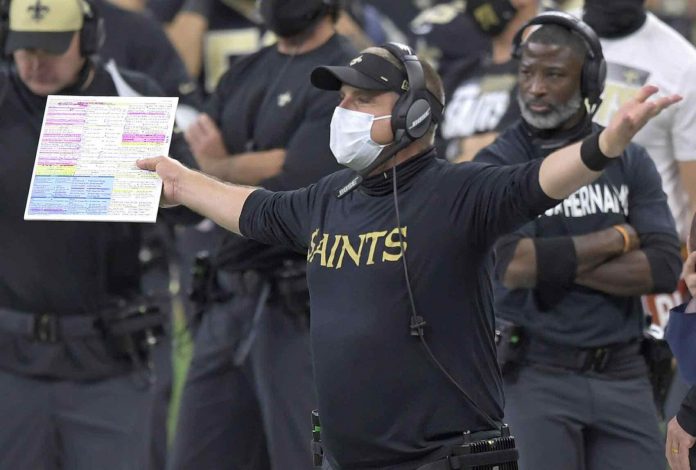On Thursday, New Orleans Saints coach Sean Payton echoed his sentiment from a few months earlier in regard to potential coronavirus outbreaks across the league.
“We’re going to continue to have an occasional (issue),” Payton said. “It’s inevitable and you’re just trying to keep it to a minimum.”
At the time, though, he was speaking to the situation unfolding 500 miles north in Nashville with the Tennessee Titans.
But fast forward to Saturday: the issue hit close to home when fullback Michael Burton reportedly returned a positive coronavirus test after the Saints had already arrived in Detroit — presumably from his Saturday morning nasal swab.
And the big question is… what happens now?
A refresher on how the NFL’s coronavirus tests work
As it stands right now, NFL players, coaches and staffers test most days of the week, but they don’t routinely test on game day — which is part of the reason behind why the Tennessee Titans’ outbreak has concerned those in NFL circles.
For a normal game week, players, coaches and staffers get tested Monday-Saturday in the morning. They test on their Tuesday off-day as well. Those tests are typical nasal swabs — not the 6-inch nasopharyngeal swabs that were used around the world in the early days of the pandemic.
Those tests — for the Saints, specifically — get driven via courier to the BioReference Laboratories facility in Houston, which is a 348-mile drive.
There are several BioReference facilities serving the NFL’s swath of tests from its 32 teams, including one site in New Jersey that had an “isolated contamination” issue with several tests back on Aug. 22.
Typically, the Saints get their test results back in the early hours of the morning.
It is probable that the Saints received their Saturday test results back from the Houston BioReference lab a little earlier than normal, which is why the news regarding Burton’s positive test dropped just before 11 p.m. CT.
Full disclosure: select beat reporters that cover the Saints on a daily basis are tested during the week, too. The reporter who wrote this story is one of them, testing three days a week. For a Sunday game, those reporters get tested on Tuesday, Wednesday and Thursday ahead of Wednesday’s, Thursday’s and Friday’s practices. Reporters do not test when arriving at the stadium for games, but they do fill out questionnaires and have their temperature taken.













